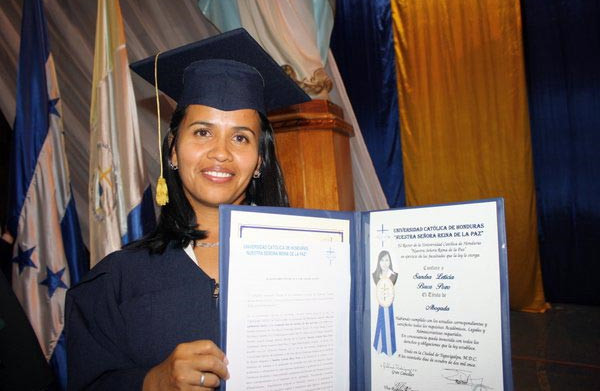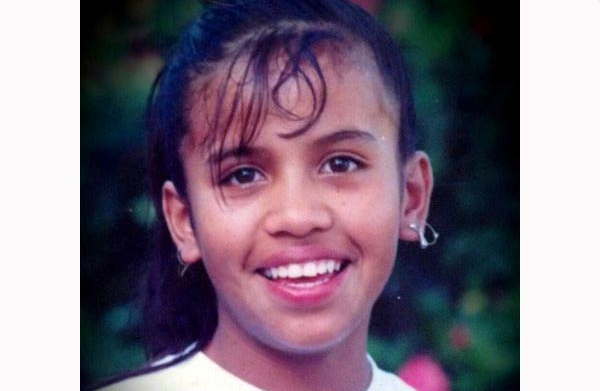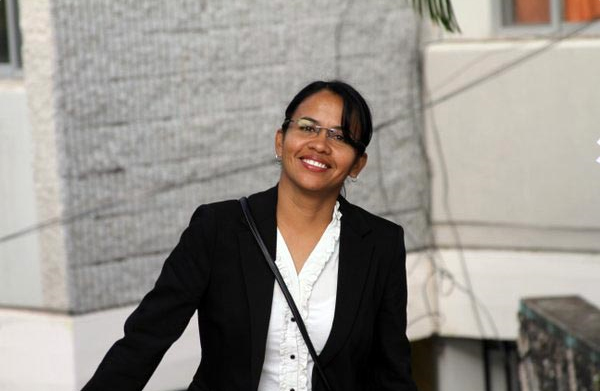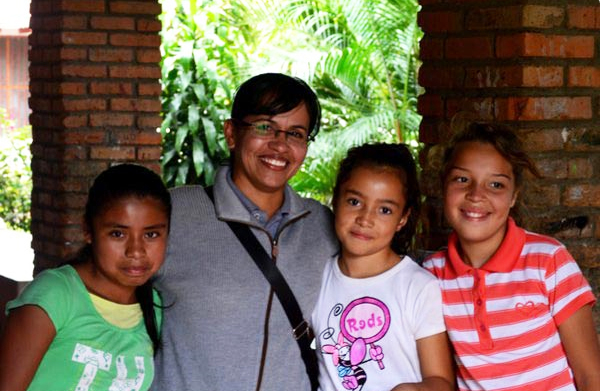Gender Equality in Latin America
“Today in Latin America, women are beginning to have a different and more challenging role because we are better prepared through education.”
 Written by Sandra Baca
Written by Sandra Baca
Lawyer for NPH Honduras
March 7, 2017
I graduated as a lawyer from the Catholic University of Honduras in 2011, and in the same year I began to work for NPH. I like when my work directly affects the wellbeing of our children and young people at NPH. I also like the direct contact I have with people, the feeling that they are placing their trust in me, and the relationship I establish with them. There is nothing more gratifying than the moment when you can tell your boss you have done something well.
Before NPH it was difficult to receive a good quality education. Both my parents had to work to give us what we needed to attend school. Many times my twin sister and I had to miss class to look after my younger siblings and my mother when she was very sick. Our mother passed away, and I arrived at NPH in 1990 along with five of my six siblings. My father is a carpenter, and what he earned wasn’t enough to give us everything we needed. At NPH, I received a high quality education that I made the most of. I had excellent people who advised me, guided me, and encouraged me along the way.
Gender inequality is common here in Honduras. There is a gender wage gap. It begins in the family where women are taught to do the household chores, while men are taught to work in the fields or the office. The domestic work that women do isn’t paid, it isn’t valued economically, and in the majority of cases it is viewed as an obligation on a woman simply because she is a sister, a mother, or a wife.
Today in Latin America, women are beginning to have a different and more challenging role because we are better prepared through education. We have demonstrated time and again that we do a good job in the labor market. To educate a woman really is to educate humanity. Children spend more time with their mothers when they are young, and studies show that the main influence on the level of education a child achieves is the mother’s own level of education. Early parenthood is common in Latin America, and motherhood can prevent young women from continuing their university studies. Young women often don’t have the support to raise their children and study at the same time.
In the past few years, there have been advances in legislation, education, and in the fight against violence against women. Latin America can achieve gender equality by establishing gender equality policies, empowering women, inserting gender equity into every area of society, and through education about gender matters. These are all key in moving towards a life with equal conditions for men and women and a life free from violence against women.
Now, Sandra follows up on her earlier story with further thoughts on the challenges women face in the country, as well as on Chicas Poderosas, a young girls “youth group” that focuses on developing self-esteem, confidence, and forming networks of support within the NPH family.
About Chicas Poderosas
I think Chicas Poderosas is a very good program where young women are motivated to develop the capacity to become entrepreneurs, to take risks and decisions that benefit both themselves and their families, as well as to stimulate self-esteem, a sense of belonging, solidarity and commitment.
Young people have important perspectives and opinions that are often not heard. Active participation empowers girls and can play a vital role in their own development. To increase participation, there needs to be a more collective and improved understanding of what youth participation entails and how it can be understood by children and adolescents.
In my opinion, I hope that Chicas Poderosas will continue to grow and help the girls of NPH to become even more personally and professionally successful.
About obstacles that women and younger girls face in Honduras in the workplace, school, and elsewhere
The role of women in the workplace is still facing many challenges and obstacles; women still represent a marked minority in hierarchical positions. Other factors, such as caring for infant children, can condition the professional future of a woman for years to come. For a woman to be paid a fair wage, she has to demonstrate more than most that she is capable of doing the work well.
Violence against women is a form of discrimination and a violation of human rights. It causes untold sufferings, and it leaves countless women around the world living in pain and fear. It causes harm to families for generations, impoverishes communities and reinforces other forms of violence in societies. Violence against women prevents them from achieving full personal fulfillment, restricts economic growth, and hampers development. The extent and spread of violence against women manifests itself in the scope and persistence of all forms of discrimination that women still continue to face. I think it is possible to eliminate discrimination by promoting equality and the empowerment of women and by ensuring the full promotion human rights for all women. There are many different forms of violence against women: physical, sexual, psychological, and economic. Some are more important to address than others, as societal changes affect how women face discrimination on a daily basis.
About how NPH prepared her to succeed in school and in work
NPH was and is that blessing. It was a huge support in finishing my university degree. Many thanks to those with great sacrifice and generosity trusted, and continue to trust, young people who have personal and economic setbacks before reaching NPH. In the course of my life, I continue to meet people who motivate me, who help me to move forward, and achieve my goals. NPH and the staff who mentored and cared for me for a long time have helped me form these excellent values, which I try to put them into practice in various aspects of my life. I am eternally grateful to God and to NPH.
Related Information:
• NPH Honduras
• How Your Help Makes an Impact at NPH
• Education Program
• Higher Education Program
• Girls’ Empowerment Programs
Photo above: Sandra at her university graduation in 2011. Photos below: A young Sandra; today Sandra is the lawyer for NPH Honduras; Sandra with girls at the home.













